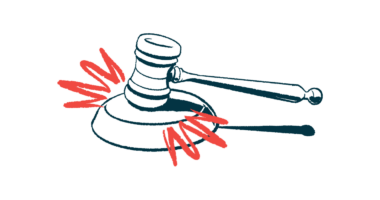Potential Therapy ABBV-CLS-7262 Up Next for HEALEY Platform Trial

ABBV-CLS-7262, an experimental compound being developed by Calico Life Sciences and AbbVie for amyotrophic lateral sclerosis (ALS), will likely serve as the sixth therapy in the multi-regimen HEALEY ALS platform trial.
HEALEY (NCT04297683) is testing the potential of several ALS treatment candidates simultaneously with a goal of speeding the development of those showing the most promise, while reducing associated costs.
The platform trial is being led by the Sean M. Healey & AMG Center for ALS at Massachusetts General Hospital (MGH), Boston, and therapy candidates entering the study are chosen by ALS experts and members of the center’s science advisory committee.
“We look forward to testing ABBV-CLS-7262 as another ALS investigational product in the HEALEY ALS Platform Trial,” Merit Cudkowicz, MD, HEALEY’s principal investigator and sponsor, said in a MGH press release. Cudkowicz is also the director of the Sean M. Healey & AMG Center for ALS.
“It’s exciting to be able to test multiple products at once in hopes of accelerating the path for more treatments for ALS,” Cudkowicz, who’s also the chief of the department of neurology at MGH and the Julieanne Dorn professor of neurology at Harvard Medical School, said.
Sabrina Paganoni, MD, PhD, a physician-scientist at the Healey & AMG Center and co-lead investigator of the trial, said the committee “has evaluated ABBV-CLS-7262 for inclusion in the platform trial based on the quality of Calico and AbbVie’s science and readiness for the platform.”
“We look forward to having them on board,” Paganoni said.
ABBV-CLS-7262 is an orally available molecule that works by activating eIF2B, a protein complex required for protein production. The complex is suppressed in response to stress as part of the cell’s integrated stress response (ISR), which seeks to restore protein and cellular balance to prevent cell death.
Increasing evidence supports prolonged cellular stress and an overwhelmed ISR as contributing factors to stress granules accumulating and the development of neurodegenerative diseases such as ALS.
Stress granules are toxic clumps of proteins and other molecules thought to be precursors of toxic aggregates of the TDP-43 protein, found in about 97% of all ALS cases.
By activating EIF2B, ABBV-CLS-7262 is expected to restore protein production, clear TDP-43 aggregates, and improve the survival of nerve cells. Indeed, the therapy was shown to restore protein production and break down preformed TDP-43-containing stress granules.
Under the terms of the agreement between Calico and AbbVie, the former is responsible for ABBV-CLS-7262’s research and early development up to Phase 2a trials, while AbbVie will have the option to manage late-stage development and commercial activities.
Late last year, Callico, collaborating with AbbVie, launched a Phase 1b clinical trial (NCT04948645) to evaluate the safety, tolerability, and pharmacokinetics of the experimental therapy against a placebo in up to 30 adults with ALS. Pharmacokinetics refers to the therapy’s movement into, through, and out of the body.
Participants — still being recruited at 12 sites in the U.S. and Canada — are randomly assigned to receive either ABBV-CLS-7262 or a placebo for four weeks, after which all will be given the experimental therapy for 44 weeks (about 10 months). The study is expected to conclude May 2023.
The Phase 2/3 HEALEY platform trial has completed patient enrollment for three of its other regimens: Clene Nanomedicine’s CNM-Au8 (NCT04414345), Biohaven Pharmaceuticals’ verdiperstat (NCT04436510), and Prilenia Therapeutic’s pridopidine (NCT04615923).
Recruitment for an additional regimen, Seelos Therapeutics’ SLS-005 (NCT05136885), is still ongoing at more than 30 U.S. sites, all part of the Northeast ALS consortium (NEALS).
Another of its regimens, UCB’s zilucoplan (NCT04436497), was discontinued due to a lack of effectiveness following a pre-specified interim analysis.
In each arm of HEALEY, about 160 ALS patients are randomly assigned in a 3:1 ratio to receive either an experimental therapy or a placebo for 24 weeks, or about six months. The placebo group is shared among regimens to strengthen trial data.
The platform study is assessing each treatment’s safety and ability to slow ALS progression. Changes in muscle strength, lung function, and survival are also being evaluated. HEALEY is designed to add clinical sites, participants, and treatment candidates until a cure for ALS is discovered.







